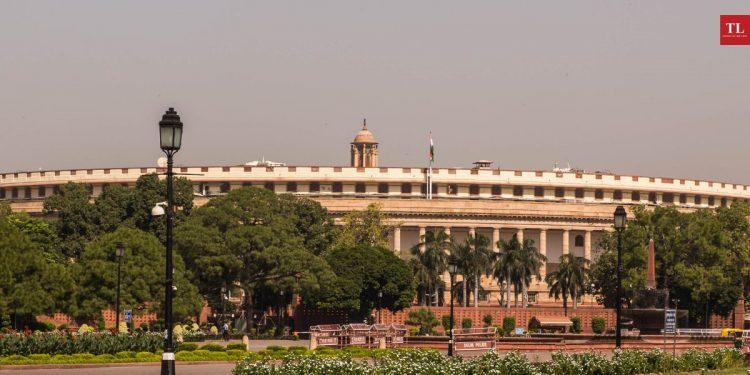CAA Again: One More Central Notification Violates Constitution

The 1955 Citizenship Act does not provide for religion or region as criteria to grant citizenship of India. The 2019 Citizenship Amendment Act changed this, but it has been challenged in the Supreme Court and a decision is still awaited. In the meantime, through Rule making power, the Centre is indirectly implementing CAA. This is anti-Constitutional, writes RASHMI SINGH.
—
The doctrine of colourable legislation, also known as a fraud on the Constitution, is based on the Latin maxim, “Quando aliquid prohibetur ex directo, prohibetur et per obliquum,” which means you cannot do indirectly what you cannot do directly. The notification issued by the Government on 28th May, 2021, has brought this doctrine to the forefront for many.
It purports to be an innocent executive order, but this notification has worried those who had opposed and protested against the Citizenship Amendment Act (CAA), 2019 on the ground of religion-based classification.
The gravamen of the CAA
To bring matters into perspective, people were protesting against the CAA over the main grievance that sections 2, 3, 5 and 6 provided for citizenship to be granted based on religion and region. Both are arbitrary criteria, that are not recognised by the Constitution as conditions to grant citizenship.
Also Read: Citizenship Amendment Act: The students versus the regime
To recap, here are the key amendments in the CAA, 2019:
- It allows any Hindu, Sikh, Buddhist, Jain, Parsi or Christian migrant from Afghanistan, Bangladesh or Pakistan, who arrived in India on or before 31 December 2014 to apply for Indian citizenship, even if they arrived without valid travel documents or entered with a valid travel document but stayed beyond the permitted period.
- It grants migrants from these three countries immunity against legal action concerning their immigration status.
- It reduces the qualifying length of residency in India before being eligible to apply for Indian citizenship from “not less than eleven years” to “not less than five years” for Hindu, Sikh, Buddhist, Jain, Parsi or Christian migrants from Afghanistan, Bangladesh and Pakistan.
Therefore, two kinds of classification are built into the CAA. One, classification based on religion by excluding Hindus, Sikhs, Buddhists, Jains, Parsis and Christians from the ambit of illegal migrants; and two, classification based on country, by restricting the benefit to persecuted religious minorities only from Afghanistan, Pakistan and Bangladesh.
The Constitution of India expressly bars discrimination based on religion. It has been settled by the Supreme Court through a catena of judgments that secularism is a basic feature of the Constitution. After the 42nd Amendment to the Constitution, no doubts were left as to the fact that India is a secular country.
The 42nd Amendment introduced a declaration in the Preamble that India is secular, which is to say, the Government of India shall have an equal, neutral and objective approach to all religions and shall belong to no religion whatsoever.
Landmark judgements of the apex court have laid the foundation of secularism. In Kesavananda Bharati v State of Kerala, the Supreme Court categorically held that the state “shall not discriminate against any citizen on the ground of religion only.”
Covertness in overtness
It is now apposite to deal with the notification dated 28 May 2021, through which the Centre has delegated to the Collector or Secretary the power it exercises under sections 5 and 6 of the Citizenship Act, 1955. These sections deal with registration as a citizen of India and grant of certificate of naturalisation, respectively.
The power to grant citizenship is applicable in the case of any person who belongs to the minority community in Afghanistan, Bangladesh and Pakistan, namely, Hindus, Sikhs, Buddhists, Jains, Parsis and Christians.
The notification further provides that after examining the application and being satisfied with the “suitability of the applicant”, they will be granted citizenship by registration or naturalisation, by issuing a certificate.
The benefit of the notification has been made available to concerned persons residing in:
(i) Morbi, Rajkot, Patan and Vadodara in Gujarat;
(ii) Durg and Balodabazar in Chhattisgarh;
(iii) Jalore, Udaipur, Pali, Barmer and Sirohi in Rajasthan;
(iv) Faridabad in Haryana; and
(v) Jalandhar in Punjab.
Also Read: CAA rules on hold, Centre opens similar citizenship window in five states
A similar notification was issued by the central government on 23 October 2018, wherein the powers under sections 5 and 6 of the Citizenship Act, 1955, were delegated to the Collector or Secretary to grant citizenship to Hindus, Jains, Sikhs, Parsis, Buddhists and Christians, and exclude the Muslim community.
Three problems with the notifications
One, the Citizenship Act, 1955 does not recognise religion or region-based classification. The notification has been issued by the government under the Citizenship Act, 1955. It is settled law that any notification, by-law, or order issued by the government, in the exercise of its power under a statute has to necessarily further the object and purpose of the statute.
The notification, being a delegated legislation, can be challenged if it violates the Constitution or the enabling Act or if it is made in bad faith. All three scenarios seem to apply to the May notification because nowhere in the scheme of the Citizenship Act, 1955, can one find the religion or region-based classification that the notification seeks to achieve.
The CAA, 2019, however, intends to achieve precisely this, i.e., grant citizenship to people of six particular religions from three countries. In simple terms, the notification is not aligned with the object of the Citizenship Act, 1955, as has been purported.
Notifications lack a reason for classification
A perusal of the notifications clearly shows they seek to provide the benefit of online application for citizenship to Hindus, Sikhs, Buddhists, Jains, Parsis and Christians from Afghanistan, Bangladesh, and Pakistan. However, no reason whatsoever is provided for the express exclusion of Muslims from what is purportedly a mere delegation of power by the central government to local authorities.
It is crucial to remember that the government is bound by the Constitution to refrain from arbitrary and unreasonable classification, even in its executive orders.
Irreversible damage
Much has been said about the unconstitutionality of the CAA, 2019. Writ petitions challenging its validity are still pending before the Supreme Court. The primary contention in them is that the CAA violates Articles 14 and 21 of the Constitution, as it grants citizenship based on region and religion and has completely excluded the Muslim community.
Also read: MHA Notification On Citizenship For Refugees Unrelated To CAA, Centre Tells Supreme Court
If the government, through this innocent-looking notification, proceeds to grant citizenship to persons from certain religions while excluding others, it is in a way accomplishing precisely what it intended to accomplish through the CAA. Once this benefit is unleashed upon thousands of people in this unconstitutional manner, the same would become irreversible and render the pending matters futile.
The consequences of the May notification should worry us, particularly when petitions challenging the CAA, 2019, are pending. The notification is patently unconstitutional as it violates Articles 14 and 21 of the Constitution directly by unreasonably and arbitrarily excluding Muslims.
It also goes against the spirit of the Constitution. The government is duty-bound by the Constitution to not discriminate based on religion. The patent unfairness in the present notification must necessarily result in it failing the test of constitutionality. And where subordinate legislation violates the Constitution, it must be set aside.
Also read: Chakka Jaam: Legit for Sangh, Seditious for CAA Protesters
The sole, arbitrary and mala fide aim sought to be achieved through such notifications is to provide a haven to all minorities to the express exclusion of Muslims. In other words, the only criteria that need to be fulfilled by a member belonging to a minority, to benefit from the so-called haven the government is providing, is to not be Muslim. This logic is in itself deeply perverse and discriminatory and can go to the extent of causing communal disharmony.
(Rashmi Singh is a Delhi-based lawyer. The views expressed are personal.)
The article was originally published in The Leaflet.
Get the latest reports & analysis with people's perspective on Protests, movements & deep analytical videos, discussions of the current affairs in your Telegram app. Subscribe to NewsClick's Telegram channel & get Real-Time updates on stories, as they get published on our website.
























